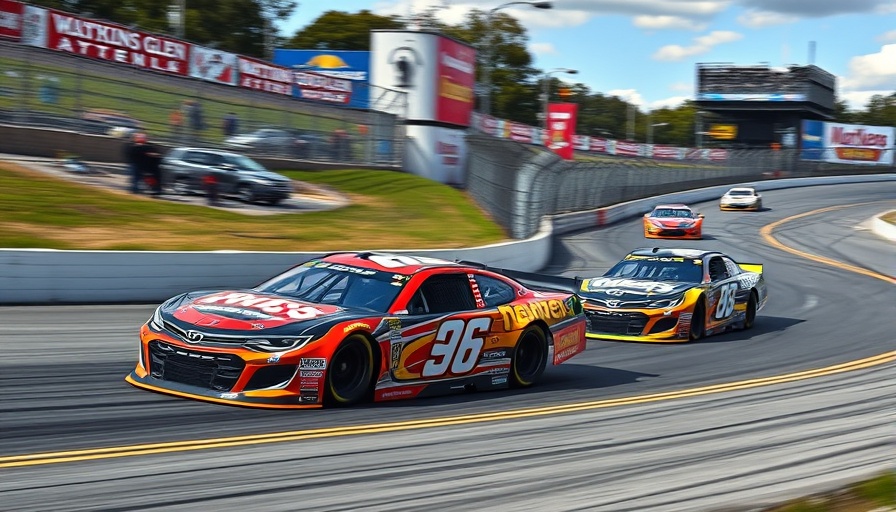
Inside the Mind of Carl Edwards: The Pressure of NASCAR
In a candid interview with Dale Earnhardt Jr. on the Dale Jr. Download, Carl Edwards opened up about the pressures he faced as a NASCAR driver, revealing how the constant push to succeed impacted his mental health. It was a profound moment for fans as he recalled his unexpected retirement from racing—a topic that has sparked discussions among enthusiasts ever since.
The Moment that Shattered a Champion's Spirit
Edwards, a multi-time winner, felt his dreams collide with harsh realities during the nail-biting finale of the 2016 NASCAR season. Just 15 laps away from a potentially glorious championship win, an unanticipated caution flag changed everything. This significant turning point forced Edwards into a situation that many believed would define his legacy.
As he fought with fellow competitor Kyle Busch, Edwards seemed poised to secure the title when disaster struck—a caution for a minor issue with a competitor left him defensive about his position, leading to a catastrophic crash. This incident not only ended his championship run but also played a pivotal role in his decision to retire. Describing the experience, Edwards remarked, “It was like the final thing to say damn it, you’re not supposed to win this thing.” This sense of uncertainty led him to question his future in a sport he loved.
The Role of Sportsmanship
In an emotional moment, Edwards recalled his calm demeanor as he climbed from the wreckage of his mangled car, shaking hands with the No. 22 team before walking away from NASCAR forever. Dale Earnhardt Jr. reflected on the racing dynamics, emphasizing how Edwards had always trusted the purity of racing—an ethos now warped by entertainment-driven caution flags that altered the game.
Faith, Family, and Self-Discovery
Another layer of Edwards’ decision stemmed from his spiritual journey. Transitioning from atheism to faith, he acknowledged how personal beliefs influenced his perspective on winning and losing. “I realized my happiness was based on how racing went,” he stated, pointing to the intense self-worth he tied to his performance on the track. This mental burden weighed heavily on him, leading to what he called 'bad behavior' when outcomes did not go his way.
A New Chapter: Reflections on Retirement
After stepping away from racing, Edwards found clarity. He reflected, “I’m thankful for it,” emphasizing the importance of prioritizing family life over the adrenaline rush of racing. His narrative strikes a chord with fans who grapple with pressure—sports or otherwise. Edwards’ observations echo a broader struggle in competitive arenas where mental health is often overshadowed by the pursuit of triumph.
The Future of NASCAR: A Call for Change?
As a voice in the sport now as a NASCAR analyst, Edwards has a platform to influence change. His experience could challenge NASCAR’s existing ethos—the balance between entertainment and purity. Fans and competitors alike can learn from Edwards' journey about the significance of mental health in sports and the necessity for a more supportive environment for drivers facing relentless pressure.
Join the Conversation
As the NASCAR community reflects on the valuable lessons learned from Edwards’ interview, taking a moment to discuss these issues could foster deeper understanding and support for current drivers. How can we advocate for healthier practices in sports? What changes would you suggest to improve the racing environment? Join the conversation and share your thoughts!
 Add Row
Add Row  Add
Add 




Write A Comment